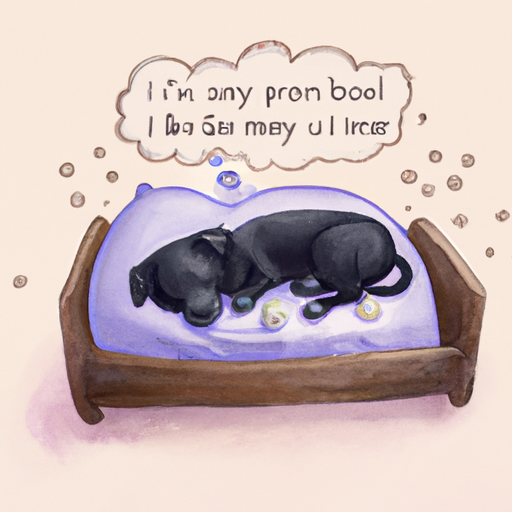Introduction
You’ve just brought home your new puppy, a bundle of joy that you’re excited to introduce to your family. You’ve planned for playtimes, walks in the park, and lots of cuddling. But now, you notice something strange: your puppy is sleeping a lot. Is this normal, or should you be concerned?
Understanding Puppy Sleep Patterns
Just like human babies, puppies need a lot of sleep to aid their rapid growth and development. Puppies can sleep 18-20 hours a day during their first few weeks. This sleep time is divided between night sleep and frequent naps throughout the day.
Table: Puppy Sleep Hours by Age
| Age | Average Sleep Hours |
|---|---|
| 8 weeks | 18-20 hours |
| 3-4 months | 16-18 hours |
| 4-12 months | 14-16 hours |
The Importance of Sleep for Puppies
Sleep is crucial for your puppy’s health and well-being. During sleep, your puppy’s body works hard on:
- Growth and Development: Growth hormones are released during sleep, which is why puppies need more sleep than adult dogs.
- Immune System Support: Sleep helps strengthen the puppy’s immune system, protecting them from sickness.
- Learning and Memory: Sleep helps puppies process and remember what they’ve learned.
Factors Affecting Your Puppy’s Sleep
Several factors can affect how much your puppy sleeps:
- Age: Younger puppies sleep more than older ones.
- Activity Level: Puppies that are more active will need more sleep.
- Diet: A nutritious diet can affect the quality of your puppy’s sleep.
- Health: Illness or discomfort can either increase or disrupt sleep.
How to Ensure Your Puppy Gets Quality Sleep
Ensure your puppy is getting quality sleep by following these tips:
- Provide a Comfortable Bed: Your puppy needs a safe, quiet space to sleep in.
- Set a Routine: Establish a regular sleep-wake cycle for your puppy.
- Ensure Proper Exercise: Regular playtime and walks can help tire out your puppy, ensuring they get good sleep.
- Feed a Balanced Diet: Proper nutrition is essential for quality sleep.
When Should You Be Concerned?
While it’s completely normal for your puppy to sleep a lot, there are times when excessive sleep could indicate a problem, such as:
- Changes in Sleep Patterns: If your puppy is sleeping significantly more or less than usual.
- Lack of Energy During Awake Times: If your puppy seems unusually lethargic or uninterested in play when awake.
- Other Symptoms: If excessive sleep is accompanied by other symptoms like loss of appetite, vomiting, diarrhea, or limping.
Frequently Asked Questions
Q: My puppy is sleeping more than 20 hours a day. Should I be worried?
A: If your puppy is very young (under 12 weeks), this could be normal. However, if they’re older or showing other signs of being unwell, it’s best to consult with a vet.
Q: My puppy seems very active. Is it normal that they still sleep a lot?
A: Yes, even active puppies need lots of sleep. They often have bursts of energy followed by long naps.
Q: Can I wake my puppy up if they’re sleeping too much?
A: It’s best to let sleeping puppies lie. They need the rest to grow and develop properly. However, establishing a regular sleep-wake cycle can help regulate their sleep.
Q: If my puppy isn’t sleeping enough, what can I do?
A: Ensure they have a comfortable, quiet place to sleep. Regular exercise and a balanced diet can also promote better sleep. If the problem persists, consult with a vet.
In conclusion, while it may seem concerning to see your new puppy sleeping so much, it’s usually nothing to worry about. However, if you notice any drastic changes in their sleep patterns or other signs of illness, it’s always best to consult with a vet. After all, as a loving caregiver, you want the best for your furry friend.



